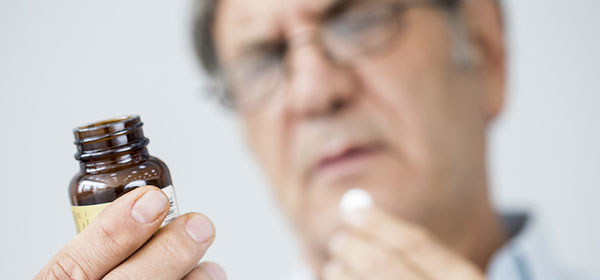The patient in front of me was clearly in pain. His face was drawn, his hand clutched his side and every breath caused a sharp, stabbing pain across his chest. He had mesothelioma, the sad sequel to a life in the navy as a young man where loose fibres of asbestos were wrapped around the engines he worked on every day. He’d had radiation treatment to the chest but now the pain was worse again. He was a feisty fellow in his mid-seventies, determined to remain active and involved as long as possible. He lived with his wife and two beagles and was furious about the cancer, about the breathlessness and now about the pain. His wife, Bev, shook her head and frowned at him, her hands on her hips. She was used to dealing with his stubborn streak and had spent the last 50 years working around him one way or another to get what she wanted.
“Ron,” she said fiercely. “Just take the bloody medication like the doctor told you.”
“I’m not taking that crap,” said Ron between grimaces. “Just give me another bloody Panadeine Forte.”
“You’ve had four so far today. You can’t have any more.”
“Then just shoot me.”
“Oh for God’s sake, love, take it!” Bev held the small white tablet out in the palm of her hand, her face softening. Ron shook his head resolutely.
“I’ll get addicted. It’ll kill me. I’m not taking it and you can’t make me.”
He was right. We couldn’t make him. As a doctor, I knew that pain relief would not only ease his physical pain, it would also assist his breathing. And better pain control would mean better breathing, less chance of pneumonia and a better quality of life. Bev knew it would improve his mood and make him less snappy with the grandkids. The fears that Ron expressed are very common concerns for people who are suddenly faced with the need to take strong pain relievers.
It’s an interesting comment on the human condition that we’ll happily take a whole lot of medications that are a lot more dangerous than pain relievers without a second thought. But offer someone a prescribed painkiller, and prepare yourself for a recitation of excuses: “I’ll get addicted. It’ll make me too constipated. They only prescribe that when you’re going to die. There won’t be anything left when I get really crook …”
Pain is just not an important enough symptom. It should be.
In reality, patients with cancer pain don’t get the same addiction patterns as people using opioid drugs on the streets. We know that good pain control actually prolongs life, and that many, many patients need opioids to manage pain for years, and that they live active lives. Today’s pain and palliative medicine offers a wide range of options in pain management near the end of life.
Thanks to Bev’s constant nagging, Ron eventually tried the recommended painkiller. It helped. He was pleasantly surprised. The sky didn’t fall, and he slept better. Bev told him that they mustn’t let their fears and ignorance destroy their quality of life. Ron also started to take medication for his bowels.
Do you have a similar attitude towards painkillers? Do you put off taking them for fear you’ll become addicted?
Related articles:
Five unknown painkillers
No prescription, no painkillers
The perils of painkillers

